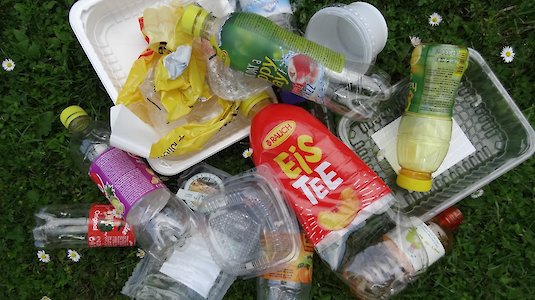100 percent recyclable - more illusion than reality
Our colleagues from the VKI investigated the slogan "100 per cent recyclable" as part of a greenwashing check - and were surprised. Consumers will probably expect complete recycling. Unfortunately, this is very often not the case. What is meant is the theoretical recyclability - not the actual recyclability.
Recycling instead of incineration
Recycling is a central component in closing material cycles. The basic idea: instead of burning or dumping raw materials, they are processed and recycled. In this way, old becomes new again - and primary raw materials and valuable resources can be saved. In 2015, for example, the EU launched the Circular Economy Action Plan, and the Austrian Ministry for Climate Protection is also very active in this area - for example, by currently developing a national circular economy strategy (more information here).
100 per cent recyclability
Time and again, products are labelled as "100 per cent recyclable". In view of such an advertisement, consumers probably rightly think that the product will actually be recycled. But this is by no means the case. If you find this slogan and the recycling symbol on a product, it only means that it is theoretically recyclable. But whether it is actually recycled is by no means guaranteed.
This is only the case if, on the one hand, the technical prerequisite for recycling is given (for example, through the existence of appropriate sorting facilities) and, on the other hand, it is actually recycled - and for this, above all, a collection system is needed (analogous to the yellow bag, for example). The colleagues from the VKI took a look at what actually happens to a biro that is supposedly one hundred per cent recyclable: in Austria, according to the unanimous feedback from various waste disposal companies and reprocessors, such a product ends up in the residual waste - and is thus incinerated. Recycling despite the advertised complete recyclability? Not a chance.
Recyclability in the Ecolabel
This problem is not entirely new. The Austrian Ecolabel, for example the one for office and school products, therefore also requires that the product can be dismantled in principle. The product must therefore be designed in such a way that it can be recycled. This requirement must be proven in the independent expert report that is necessary for the certification of a product. Furthermore, the expert report can also prove that the products are actually recycled in the end.
